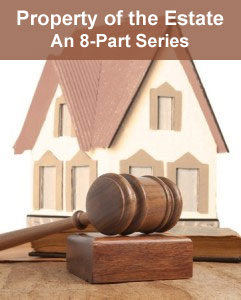 #2 of 8 in Series — Previous Article #1: What Constitutes Property of the Estate in Chapter 13 Bankruptcy and What are the Consequences of Failing to Amend the Schedules?
#2 of 8 in Series — Previous Article #1: What Constitutes Property of the Estate in Chapter 13 Bankruptcy and What are the Consequences of Failing to Amend the Schedules?
Debtor Has Duty to Disclose All Assets and Liabilities at Start of Bankruptcy Case
Regardless of whether an asset is property of the estate or not, the debtor has a duty to disclose it. The Bankruptcy Code requires that a debtor disclose all of his or her assets at the commencement of the case. See Section 521* which states “[t]he debtor shall file … (B) unless the court orders otherwise, (i) a schedule of assets and liabilities. One Court has stated “Given the wide scope of § 541*, the debtor’s obligation to disclose all his [or her] interests at the commencement of a case is equally broad. Because full disclosure by debtors is essential to the proper functioning of the bankruptcy system, the Bankruptcy Code severely penalizes debtors who fail to disclose assets: While properly scheduled estate property that has not been administered by the trustee normally returns to the debtor when the bankruptcy court closes the case, undisclosed assets automatically remain property of the estate after the case is closed.” Chartschlaa v. Nationwide Mut. Ins.Co., 538 F.3d 116, 122 (2d Cir. 2008)** .
- Non-possessory property, meaning not currently in your possession
- Contingent, speculative, derivative investments
- Any claim you may have against anyone else, for whatever reason, whether you think it’s collectible or not, whether you think it has value or not
Exempt Property and Assets Must Also Be Disclosed
Failure to Disclose Assets Can Lead to Bankruptcy Revocation and Criminal Charges
Next Article in Series: Debtor Responsible for Accuracy of Bankruptcy Filing Regardless of Legal Advice
* Source: Cornell University Law School Legal Information Institute ** Source: Justia *** Source: OpenJurist
Disclosure required by 11 U.S.C. § 528(a)(3): We, the law office of Tom Scott & Associates, P.C., are a debt relief agency. We help people file for bankruptcy relief under the Bankruptcy Code.
